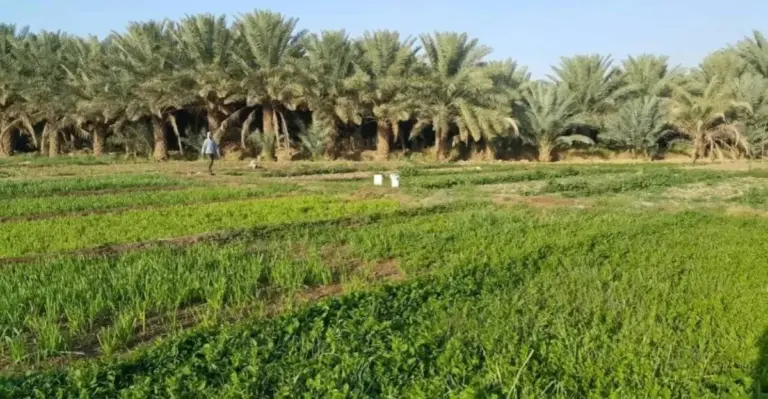Saudi Arabia is moving quickly to seize new export opportunities following a recent decision by Iraq’s Economic Ministerial Council to open the market for several agricultural products.
The Kingdom is now working intensively to enable local companies to export these crops to Baghdad, as part of its broader strategy to expand the presence of Saudi goods abroad and boost private sector revenues in support of national economic growth.
Saudi Arabia’s General Authority for Foreign Trade recently intervened to address logistical and technical challenges that had been hindering exports through the Jadidat Arar border crossing – the only overland commercial route between Saudi Arabia and Iraq. The move was aimed at ensuring smoother, faster, and more efficient trade flows between the two countries.
In a circular sent to Saudi companies and institutions, the authority confirmed that the Iraqi decision allows the import of tomatoes and onions starting in mid-October, in addition to cucumbers, which have been permitted since July. Iraqi authorities took the step due to a domestic production shortage in order to guarantee a stable supply for consumers.
Saudi Arabia has been ramping up support for exporters through a range of initiatives. These include financial incentives covering participation in international trade fairs, marketing activities, and product certifications.
Exporters also benefit from financing solutions and credit guarantees provided by the Saudi EXIM Bank, as well as promotional support from the Made in Saudi program, which strengthens the visibility of Saudi products in global markets.
As part of its mandate, the General Authority for Foreign Trade is responsible for advancing Saudi Arabia’s external trade strategy in close coordination with both public and private stakeholders.
This includes implementing the Kingdom’s commitments to the World Trade Organization, coordinating on international trade policies, following up on WTO dispute settlement cases, facilitating access of Saudi products to foreign markets, and removing trade barriers that hinder their competitiveness.
Riyadh is also seeking to leverage the Kingdom’s strategic geographic location at the crossroads of three continents to position itself as a global trade hub.
Under Saudi Vision 2030, Saudi Arabia is working to build new economic partnerships, promote exports, and transform its location into a key logistical and commercial center.
Non-oil exports have become an increasingly important engine of growth for the Saudi economy. In 2024, non-oil exports rose 13 percent year-on-year to reach SAR 513 billion (USD 131.8 billion). Goods exports accounted for SAR 217 billion (USD 57.8 billion), up 4 percent, while services exports climbed 14 percent to SAR 207 billion (USD 55.2 billion).
Re-exports also saw exceptional growth, surging 42 percent to SAR 89 billion (USD 23.7 billion).
Images are for reference only.Images and contents gathered automatic from google or 3rd party sources.All rights on the images and contents are with their legal original owners.

